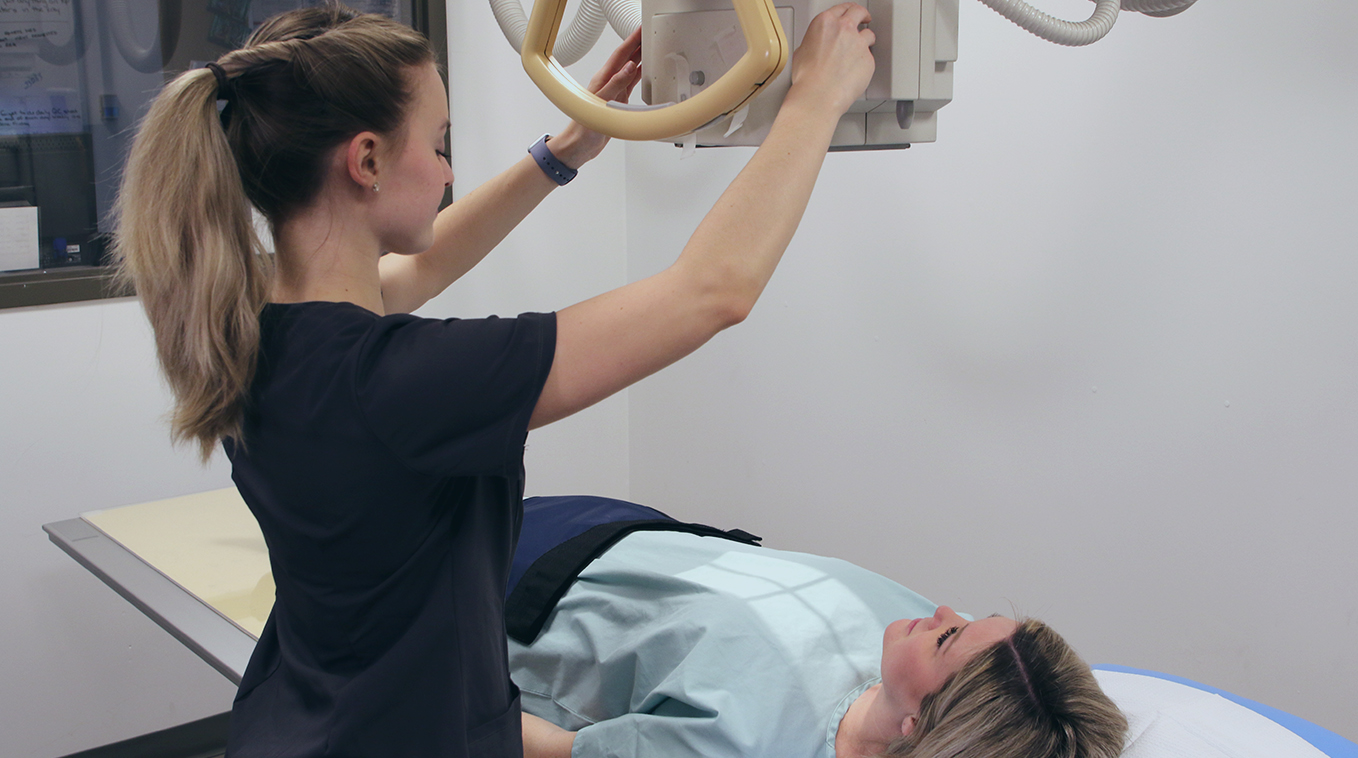TOLL FREE:
1-866-611-2665

Home WHEN IS AN X-RAY APPROPRIATE?
As one of the most frequently ordered types of medical imaging, X-ray is often the first step in using imaging to confirm a diagnosis and determine treatment options.
When the cause of your health concern, such as pain or swelling, is not easily identified through a physical exam and consultation with your doctor, medical imaging, such as X-ray, is often recommended to get a look at the area of concern.
An X-ray uses a type of electromagnetic radiation to create an image. The X-ray source sends a small amount of radiation through a body part and an image is produced as a result of the ways in which different internal structures absorb the radiation. They are particularly useful for looking at bones and dense tissues in your body.
Your doctor might order an X-ray to identify injuries or deformities within bone, or to verify how bones are healing. They could be used to detect infection of the sinuses or lungs, obstruction of the intestines, gall and kidney stones, and foreign objects within the body.
X-rays are very good a looking at bones, however they don’t see cartilage, muscles, tendons, or ligaments very well. This means that for acute injuries like an injured back, knee, ankle, or wrist, your doctor might not order an X-ray.
In fact, the vast majority of injuries that doctors see are not from broken bones, but strains or sprains of muscles and supporting tissue. For these types of suspected injuries, your doctor might order an ultrasound instead. Ultrasound is very good a looking at the soft tissues of the body. Sometimes both and X-ray and an ultrasound might be ordered together, particularly for musculoskeletal (joint or muscle) concerns like a torn tendon.
Your personal medical history will help determine which type of imaging is best suited to diagnose your concern. In determining appropriateness, there are a number of questions you could discuss with your doctor. What are your treatment options? What outcomes could be expected for each option? How do the different types of imaging work? What are the risks? What happens if you don’t have imaging? What happens after your exam?
Once your doctor has identified the need for an X-ray, you will be given a requisition form. X-rays are offered in the community on a walk-in basis at any medical imaging clinic and appointments are not required for general X-ray procedures. Simply bring your form with you.
For immigration X-rays, these exams can only be requested by IRCC-approved doctors. One of these doctors will give you a requisition form and other paperwork outlining your need for this exam. You will then be directed to go to one of the clinics approved to perform these exams. Applicants must bring their immigration medical examination, unique medical identifier, or unique client identifier numbers with them to their X-ray exam.
Your X-ray images will be reviewed by a specialized radiologist who will compile a report that is sent to your doctor within 24 hours, sooner for urgent requests. Mayfair Diagnostics is owned and operated by over 50 radiologists who are fellowship-trained in many key areas, such as neuroradiology, body, cardiac, musculoskeletal, etc. This allows for an expert review of your imaging by the applicably trained radiologist.
Your images will also be uploaded to a provincial picture archiving and communication system (PACS) – this technology provides electronic storage and convenient access to your medical images from multiple sources, such as your doctor, specialists, hospitals, walk-in clinics, etc.
Mayfair Diagnostics has 12 locations in Calgary and one in Regina that offer X-ray services. Please note, X-ray services are NOT offered at our Cochrane, Saskatoon, Southcentre, and Sunpark locations.
REFERENCES
Healthwise Staff (2021) “Adult X-Ray: About This Test.” www.myhealth.alberta.ca. Accessed June 3, 2022.
History.com Editors (2022) “1895, November 08: German scientist discovers X-rays.” www.history.com. Accessed June 3, 2022.
Radiological Society of North America (2022) “Bone X-ray.” www.radiologyinfo.org. Accessed June 3, 2022.
Our Refresh newsletter delivers the latest medical news, expert insights, and practical tips straight to your inbox, empowering you with knowledge to enhance patient care and stay informed.
By subscribing to our newsletter you understand and accept that we may share your information with vendors or other third parties who perform services on our behalf. The personal information collected may be stored, processed, and transferred to a country or region outside of Quebec.
Please read our privacy policy for more details.